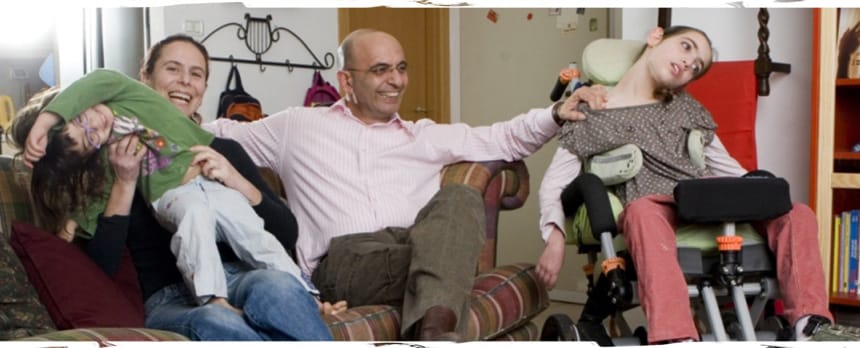Keren Malki – the Malki Foundation empowers families of children with severe disabilities in Israel to keep the children within their family home instead of living in institutions.
The challenges that face a family caring for a child with serious special-needs are never simple. Neurological disorders, severe illness and childhood developmental problems change the lives of all parties: the child, the parents, the siblings, even the community surrounding the family. We know that these families need sustained, targeted help to stand up to these challenges.
We believe that there are no better advocates and caregivers for a child than his or her parents. Global research also shows that institutional care, as important and indispensable as it can be, almost always has some negative effects on the child and the family. While other Western countries have long-understood the detrimental effect institutionalization can have on the child and their family, Israel has been resistant to this view, and government funding for home care is limited.
The Malki Foundation provides support via three unique programs:
- Equipment Lending Unit – long-term loan of special equipment for mobility, accessibility and home-care
- Therapies at Home – funds essential paramedical therapies including physical, occupational, horse, water and speech
- Therapists on Wheels – sends paramedical therapists to children with severe disabilities who are either house bound, or live in Israel’s peripheral communities
We make a substantial difference in helping the family to care for their child with severe special needs in the natural home environment, giving their child the best chance for happiness, better health and an overall greater quality of life. If the Malki Foundation’s services were not available to those families, many of them would have no alternative but place the child in institutional care.
All of our programs aim to:
- Provide a higher quality of life for children with severe disabilities.
- Empower parents to be active decision-makers in their child’s care by picking out which therapies and equipment their child needs.
- Alleviate some of the financial and physical hardships that often lead to parents deciding to institutionalize their children.

